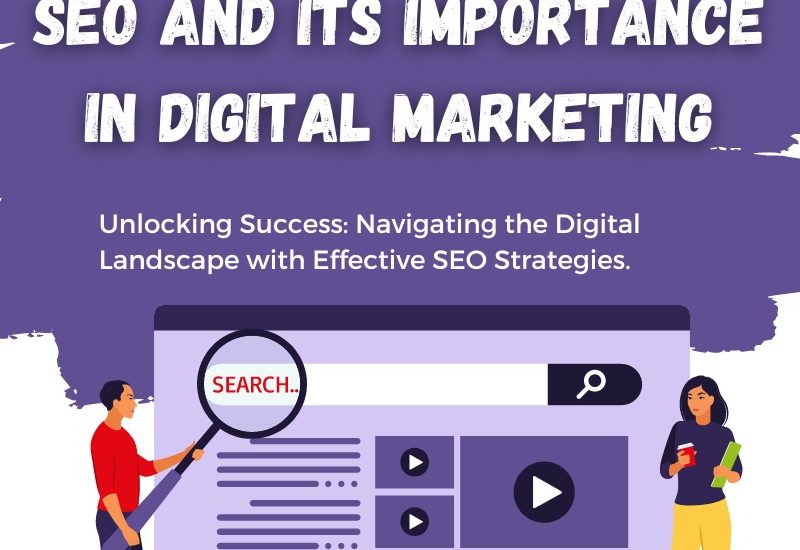SEO (Search Engine Optimization) plays a pivotal role in the realm of digital marketing, serving as a cornerstone for online visibility, brand recognition, and organic traffic generation. It is the practice of enhancing a website’s content, structure, and technical aspects to improve its ranking on search engine results pages (SERPs). The goal of SEO is to make a website more appealing to search engines like Google, Bing, and Yahoo, thereby increasing its chances of being found by users searching for relevant information, products, or services.
The importance of SEO in digital marketing cannot be overstated. Here are some key reasons why SEO holds such significance:
Increased Organic Traffic: Organic search is a primary source of website traffic. When your website ranks higher in search results for relevant keywords, you are more likely to attract clicks from users actively seeking information or solutions related to your offerings.
Credibility and Trust: High search engine rankings are often associated with credibility and trustworthiness. Users tend to trust websites that appear at the top of search results, assuming they are more authoritative and relevant to their needs.
Cost-Effectiveness: While there are costs associated with implementing SEO strategies, such as hiring experts or investing in tools, the long-term benefits often outweigh the expenses. Unlike paid advertising, organic traffic generated through SEO efforts doesn’t require ongoing payments for each click or impression.
Long-Term Results: While SEO might require consistent effort and adjustments, the results achieved tend to be more enduring compared to some other digital marketing tactics. A well-optimized website can maintain its ranking even if you scale back on active optimization efforts for a period.
Targeted Audience Reach: SEO allows you to target specific keywords and phrases that are relevant to your business. This means you can reach an audience actively interested in what you offer, increasing the likelihood of conversions.
User Experience Enhancement: SEO involves improving website structure, navigation, and content quality, which in turn enhances the user experience. Websites that are easy to navigate and offer valuable content are more likely to retain visitors and encourage them to explore further.
Local and Mobile Optimization: With the growth of mobile searches and local intent, local SEO has become crucial for businesses with physical locations. Optimizing for local searches helps businesses appear in “near me” queries and on map listings, driving foot traffic to brick-and-mortar stores.
Competitive Edge: In today’s competitive digital landscape, businesses that invest in SEO gain an advantage over those that don’t. Ranking higher than competitors can lead to more exposure, traffic, and ultimately, conversions.
Data Insights: SEO efforts provide valuable data and insights about user behavior, search trends, and website performance. This information can inform other aspects of your digital marketing strategy.
In essence, SEO is the foundation upon which successful digital marketing strategies are built. It requires continuous monitoring, adaptation to algorithm changes, and a holistic approach that combines technical expertise, content optimization, and user-centered design. By prioritizing SEO, businesses can enhance their online presence, connect with their target audience, and achieve sustainable growth in the digital landscape.





